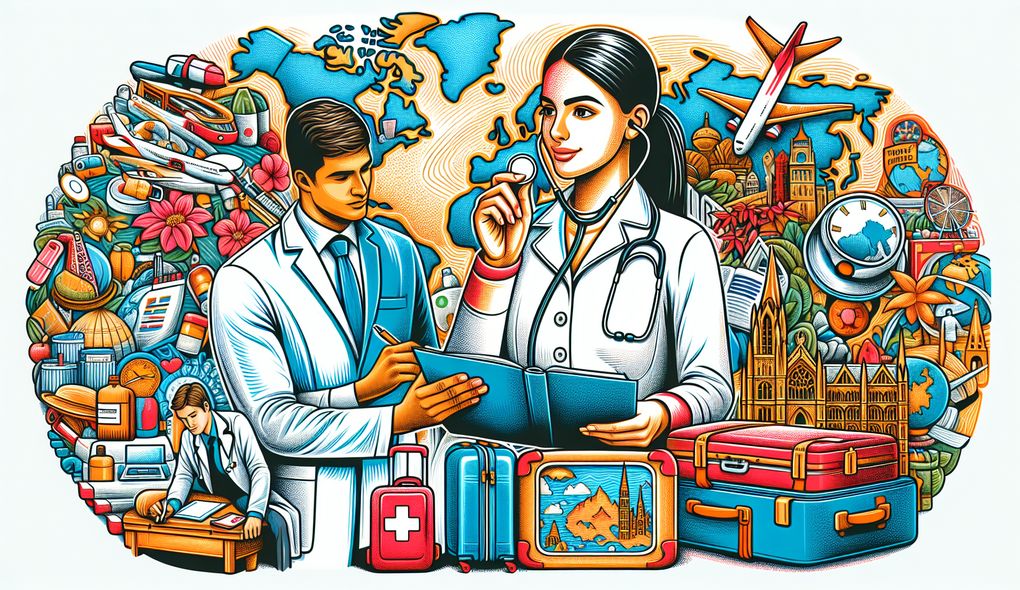Can you discuss your approach to health education in the context of travel medicine and disease prevention?
JUNIOR LEVEL

Sample answer to the question:
In the context of travel medicine, education is crucial. I usually start by assessing the patient’s health status, travel destination, and itinerary. This helps me identify potential health risks. For instance, if a patient is traveling to a malaria-endemic region, I would educate them on the need for prophylactic medication. I'd also place emphasis on the importance of wearing long clothing to prevent mosquito bites. It's also necessary to discuss appropriate dietary measures in the respective country. Moreover, I would provide them with a list of essential items to carry for health safety.
Here is a more solid answer:
As a Travel Health Nurse Practitioner, my approach to health education is comprehensive and culturally responsive. I believe in focusing on individualized patient education, tailoring the information to each patient's unique travel plans, health status, and cultural background. This is achieved through pre-travel consultations where I gather details about travel locations, patient's medical history, and lifestyle habits. For instance, if a patient is traveling to Brazil during Carnaval, I would need to discuss issues around infectious diseases, substance abuse, and injury prevention. I also use visually appealing educational materials, such as pamphlets or slideshows, to make the information easier to understand. In addition, I prioritize open dialogue to address the patient's concerns and ensure they are well-equipped for health-related travel challenges.
Why is this a more solid answer?
The solid answer reflects a more individualistic and culturally responsive approach to health education. It provides more context around health promotion and disease prevention, highlighting the importance of understanding patients' unique situations and cultural contexts. The answer also demonstrates effective communication, as open dialogue is mentioned as important. However, it still lacks the aspect of collaboration with other healthcare providers and might leaves room for practical demonstrations, like physically showing how to organize a travel health kit.
An example of a exceptional answer:
In my role as a Travel Health Nurse Practitioner, health education is central to ensuring travelers are well-prepared to handle potential health risks. I take a patient-centric, culturally sensitive approach, focusing on individual needs and taking into account cultural norms of their destination, as well as their own background. Detailed pre-travel consultations become a cornerstone of my practice. These not only involve gathering data about the patient's health status and their travel pattern but also help in building a rapport that facilitates better communication and education. For instance, if a patient is travelling to a region where Zika virus is prevalent, I would explain the diseases' transmission, symptoms, prevention methods like insect repellents, and risk to pregnant women. I would also collaborate with other healthcare professionals to provide vaccinations and prophylactic medications. Furthermore, travelers are usually encouraged to carry a customized kit containing essential medical supplies. Demonstrating how to use each item in the kit helps improve their confidence and preparedness. Lastly, documenting each interaction is crucial in ensuring continuity of care and for reference in future consultations.
Why is this an exceptional answer?
The exceptional answer includes all key elements of the job description. It dives into specific details, demonstrating a solid understanding of health promotion and disease prevention. It also shows adaptability to different cultures and patient backgrounds, effectively communicating information in a patient-friendly manner. Furthermore, it includes a demonstration of collaboration with other healthcare providers and maintaining proper documentation.
How to prepare for this question:
- Understanding the role and responsibilities of a Travel Health Nurse Practitioner will give you insights into the key aspects to focus on while answering this question. The job involves not only providing direct patient care but also patient education and collaboration with other healthcare professionals.
- Deepening your knowledge about various prevalent diseases across different travel destinations and their prevention methods will equip you with practical examples to provide during the interview. You can use resources like The WHO or CDC websites.
- Reflect on your past experiences where you had to employ effective communication and education skills with patients. This will help you articulate your approach better and show that you're not only knowledgeable but can also apply it in a practical setting.
- Familiarize yourself with various cultural considerations that can impact health behaviors. This will showcase your adaptability and cultural sensitivity, which are critical in a global health context.
What are interviewers evaluating with this question?
- Understanding of health promotion and disease prevention
- Ability to educate and communicate effectively with diverse patient populations
- adaptability to different environments and cultures

